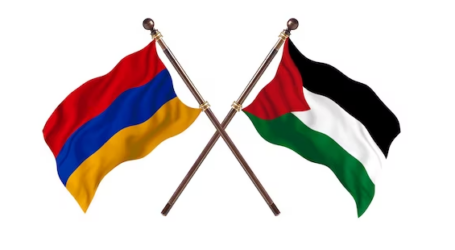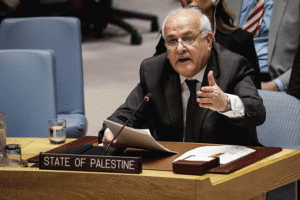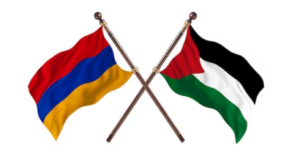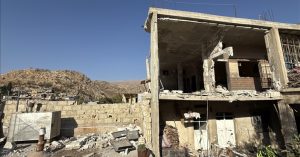The government of Armenia officially recognized the State of Palestine on Friday, June 21, 2024.
This recognition makes Armenia the fifth country to do so in 2024, following Spain, Norway, and Ireland who announced their recognition on May 28, 2024, and Slovenia which followed suit on June 5, 2024.
Armenia becomes the 148th out of 193 United Nations member states to recognize Palestine.
According to international law, the formation of an independent state requires four elements as outlined in the 1993 Montevideo Convention: a permanent population, defined territory, government, and recognition from other states.
Also Read: Be Careful of the Trap of Deploying Peacekeeping Forces to Gaza
The reasons behind Armenia’s recognition of Palestine
Response to the humanitarian situation in Gaza Armenia’s Ministry of Foreign Affairs cited the severe humanitarian conditions in Gaza and the ongoing conflict as critical international political issues requiring resolution. Armenia has supported the UN General Assembly resolutions calling for an immediate ceasefire in Gaza.
The Ministry emphasized Armenia’s efforts towards achieving a peaceful and comprehensive resolution to the Palestinian issue based on a two-state solution as the only path to peace and security.
Response to Israeli military support for Azerbaijan According to David May, Senior Research Analyst at the Foundation for Defense of Democracies (FDD) in Washington DC, Armenia’s action reflects regional conflicts of interest.
Also Read: The Forty-Four-Days of Glory: Azerbaijan’s Struggle for Justice and Peace
Armenia’s decision to recognize Palestine is seen as a response to Israel’s support for Azerbaijan. This support includes the sale of weapons such as ballistic missiles, air defense systems, electronic warfare systems, and kamikaze drones, which Azerbaijan used during the Nagorno-Karabakh conflict against Armenia.
Israel’s strategic partnership with Azerbaijan, aimed at countering Iran, has complicated relations between Israel and Armenia.
Impact of the Nagorno-Karabakh conflict The ethnic and territorial conflict in Nagorno-Karabakh between Armenia and Azerbaijan in the late 1980s and early 1990s resulted in significant casualties and displacement on both sides. Armenia continues to feel the aftermath of this conflict.
Despite a ceasefire agreement in 1994, sporadic tensions and border skirmishes persist in the region.
Also Read: Palestine Solidarity Month: A Collective Movement for Al-Aqsa and Palestine’s Freedom
In summary, Armenia’s recognition of Palestine aligns with its stance on humanitarian issues and its geopolitical considerations, particularly concerning its relations with Israel and Azerbaijan. (T/RE1/P2)
Mi’raj News Agency (MINA)
Also Read: Hassan al-Turabi: A Controversial Thinker from Sudan




































 Mina Indonesia
Mina Indonesia Mina Arabic
Mina Arabic